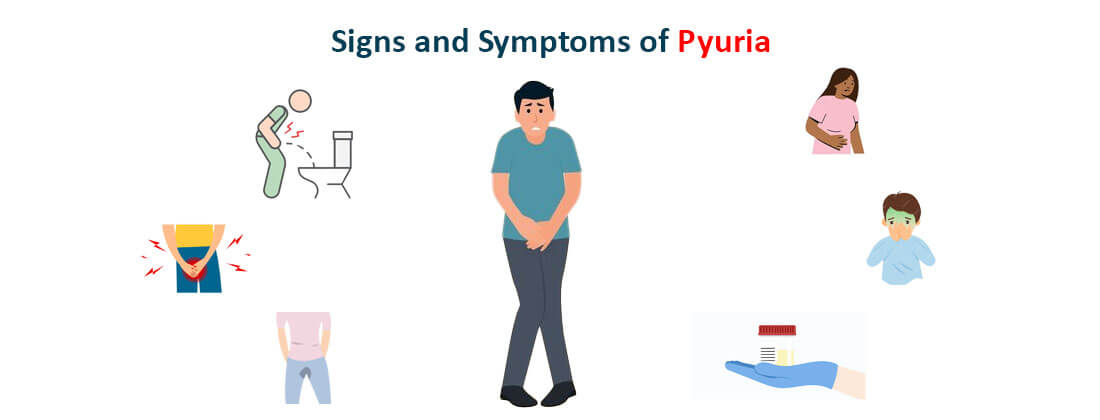
Urine analysis is the third primary screening test that doctors recommend for laboratory investigations particularly for the Pus cells in the urine.
Urine analysis is the third primary screening test that doctors recommend for laboratory investigations particularly for the Pus cells in the urine.
This study is typically carried out in order to identify and screen the different byproducts that an individual excretes through their urine as a result of both normal and pathological bodily processes. Most often, the doctors advise using it to diagnose urinary tract infections. It is also highly recommended due to its viability and shorter turnaround time.
Urine Microscopic Pus Cells
Urine detailed report, or Urine R/M as doctors refer to it, is an important and preliminary laboratory investigation technique for assessing and screening various illnesses. For individuals who may have undiscovered febrile diseases or suspected lower urinary tract symptoms (LUTS), urine R/M is another early and fundamental screening step. Pyuria is the presence of pus cells in a urine analysis.
Pus Cells: The Pus is also formed as a consequence of body’s immune response to an infection and it is caused by either the bacteria or the fungi that enter your body through the broken skin units, inhalation of the droplets, or caused due to poor hygiene.
In this case, your immune system sends the WBC or white blood cells called the Neutrophils to demolish invading microorganisms, which leads to the death of your Neutrophils and the surrounding tissue.
What Is Pyuria?
Another name for pyruria is bacteriuria. In adults, pyuria or the presence of pus cells may be a symptomless condition or a sign of an acute UTI. If a high field microscope detects more than four pus cells in a urine sample that has been centrifuged, the pyuria is deemed serious.
According to a number of studies, pyuria is diagnosed as a urinary tract infection when it is present in conjunction with lower urinary tract symptoms.
Sterile pyuria is another intriguing phrase that describes the presence of pus cells in urine but only after the urine has been cultured. The doctor considers this study in light of additional diagnostic and laboratory procedures.
Signs and Symptoms of Pyuria
The two most typical signs of pyuria are hazy or the pus-filled urine.

Should a UTI be the cause of your pyuria, some possible symptoms are as follows:
-
Discomfort in the pelvis, abdomen, or side
-
Lower Pelvis Under Pressure
-
Regular urge to urinate (frequency)
-
Sudden, intense urge to urinate
-
Urinary incontinence.
-
Dysuria, or pain during urination
-
Urine with blood in it (hematuria)
-
High temperature of Urine
-
Vomiting as well as nausea
How can one diagnose Pyuria?
A urine test called a urinalysis can be used by a medical professional to diagnose pyuria.
You will urinate into a specific sterile container at the doctor's office to undergo a urine test. When you're finished, the healthcare practitioner will send your sample to a lab so that a lab technician may examine it under a microscope to look for blood, bacteria, and white blood cells.
Normal Range of the Pus Cells in the Urine
Urine pus cells typically fall between 0 and 5. Eight to ten pus cells indicate a bacterial infection, which is typically identified as a urinary tract infection (UTI). The doctors advice taking it step further and sending urine for a culture to see which antibiotics are effective enough to administer.
Pus cells in the urine and Adult Indications
The identification of adult urinary tract infections when there are five or more (>=5) urine pus cells under an HPF (high power field microscope).
Pus cells in the urine in Children
Based on the pus cells in the urine, the doctor most likely diagnoses a urinary tract infection (UTI), which is an infection caused by microorganisms. If a bacterial illness is found in children, the doctor recommends a high intake of oral fluids.
Because these organisms are too minute to be seen without a microscope, a high field power microscope is needed to detect them. Urinary tract infections (UTIs) are primarily caused by bacteria; however fungi and viruses can also cause UTIs in rare circumstances.
Recommendation:
The doctor usually prescribes antibiotics in addition to encouraging patients to drink 3.5 liters of water a day.
Pus cells in the urine and signs in Pregnant Women
Pregnant women experience physiological and structural changes to the urinary system, which can lead to the formation of either symptomatic or asymptomatic bacteria. It has been shown that a decrease in urine concentration results from a physiological increase in plasma volume brought on by the growing fetus in the womb during pregnancy.
One of the major causes of bacterial growth in the urine is pregnancy-related glucosuria, which is also brought on by certain situations. Asymptomatic bacteriuria, or with presence of bacteria in urine and urine culture, is another name for this condition.
Yet, the patient continues to have asymptomatic bacteriuria, meaning they do not exhibit any signs of a UTI.
In Summary and Conclusion
The presence or lack of pus cells in the urine sample is reported by urine analysis. The doctor advises doing a urine study as part of the initial assessment. A bacterial, fungal, or viral infection is indicated when pus cells in the high range are seen. The doctors construct the course of treatment based on the report's clinical significance.
Cost of Urine Tests in Delhi
The Urine Tests procedures vary by region and facility. So constantly get tested at trustworthy diagnostic centers like Ganesh Diagnostic. It is staffed by trained and experienced professionals to assure patient and visitor safety.
There are multiple tests that are done to monitor any specific symptoms So get your Urine Test done your nearest Ganesh Diagnostic Center.
Note from Ganesh Diagnostic & Imaging Center
Early checkups are always better than delayed ones. Safety, precaution and care are depicted in the several health checkups at our center. We are the Nearby Pathology Lab at your service.
Here, at Ganesh Diagnostic and Imagining Center, we present simple and comprehensive health packages for any kind of testing to ensure the early prescribed treatment to safeguard your health.
Find the Best Urine Test Lab Near you and get your Test done at the earliest.
So, visit us at the earliest to ensure good health and to maintain an active immune system
For Free Consultation from the Doctor
Contact- Dr. Sonal Sharma, (MBBS, MD in Pathology)
Available: 24*7*365
Phone Number: +919212125996
Ganesh Diagnostic and Imaging Centre, the Urine Test Center Near You
Ganesh Diagnostic and Imaging Centre has a long history of offering its patients exceptional service and attention. Years' worth of happy patients in thousands!
Since 2001, it has grown to be a recognized and well-established diagnostic facility.
Their excellence is backed by NABH and NABL Accreditations.
NABH accreditation is proof of highest standard of care and service provided to the patients. NABL accreditation reflects the competency of laboratories and equipment based on some national and international standards.
Test report is available digitally too.
Ganesh Diagnostic and Imaging Centre is a one-stop solution for getting all kinds of tests done, as all services are available under one roof.
The aim of GDIC is to provide world’s finest technology at the lowest price and Free Home Sample Collection Facility.
Access Ganesh Diagnostic and Imaging Center as it is the Urine Test Laboratory Near me, with multiple pathology blood tests, catering to your specific needs.
The rates of scans are reasonably priced. Ganesh Diagnostic and Imaging Centre also offer FLAT 50% OFF on many tests.
The Tests that are conducted at Ganesh Diagnostic & Imaging Center are as follows:
Frequently Asked Questions (FAQs) on Pus Cells in Urine
What is Pus Cells Meaning?
The Pyuria or the Pus cell in your Urine means, that it is a condition that is characterized by the high levels of the white blood cells or your pus in the urine.
Which bacterium causes pus in urine?
The Parasites like the Trichomona vaginalis, the Schistosoma haematobium, the Giardia lamblia, and your Entamoeba histolytica. This might also be seen in your urine and further cause pyuria.
What does urine with 5–7 HPF have pus cells in it?
Your usual range of the pus cells in the urine is about 5 to 7 cells per HPF. The Men and the women differ in this regard due to the different hormonal factors. If this number could exceed, there would be additional testing and any investigation that could be necessary to rule out the probability of STDs or any other illnesses which are linked to the pathogens.
Is 4 number of pus cells in urine normal?
The Presence of the pus cells in the urine can be defined as pyuria is an important accompaniment of bacteriuria which may be asymptomatic or it could indicate UTI. The Pyuria is understood to be significant incase more than 4 pus cells/HPF in the centrifuged in the urine sample.
How do you reduce pus cells in urine?
Your treatment for reducing the pus cells in the urine depends on your underlying cause. The Antibiotics could be prescribed to treat the bacterial infections, while any of the antifungal medication for fungal infections. Drinking plenty of your water and along with it practicing it with good hygiene and it prevents urinary tract infections.
What are the home remedies for pus cells in urine?
Treatment of Pus Cells ( Home Remedies)
-
Drink Plenty Of The Water
-
Drink A Lot Of Cranberry Juice
-
Rest
-
Use Warm
-
Moist Heat
-
Green Tea Extract
-
Drink Green Tea
-
Over-The-Counter Pain Relievers, But Not Aspirin.











